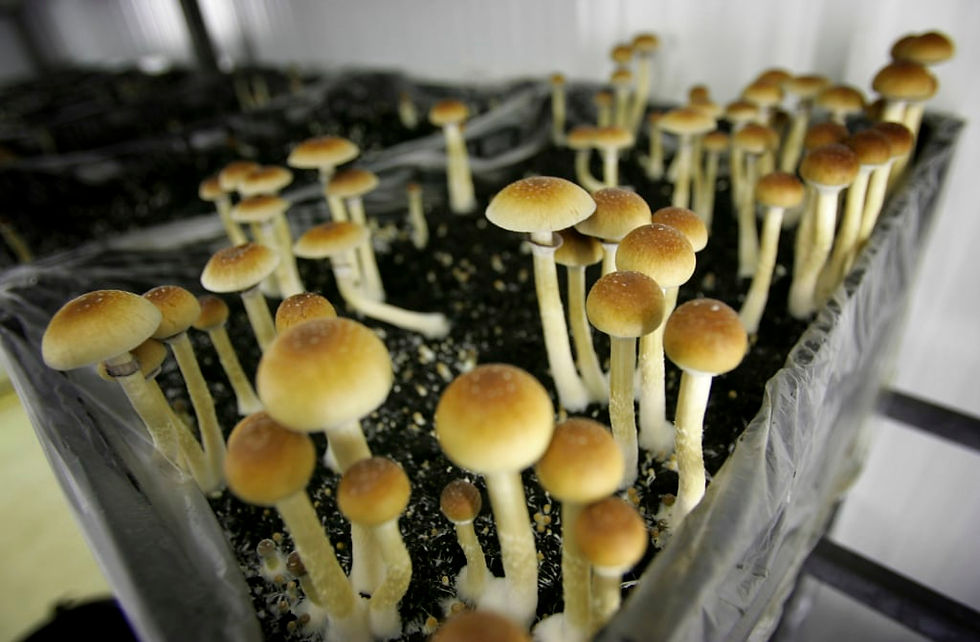Psilocybin: The Magic in the Mushroom used for Addictions Treatment
- ZB
- Oct 17, 2021
- 2 min read

Empirical research supporting the therapeutic benefits of psilocybin (the psychoactive compound in “magic mushrooms”) just keeps piling up. The idea of mushroom therapy for addiction treatment may sound like a pipe dream espoused by someone named Moonbeam on hippie-hill in Golden Gate Park who smells like patchouli. But the truth is that psilocybin research from renowned institutions shows promising results for the treatment of ailments like treatment – resistent, depression, OCD, anxiety, and addictions that has helped me stay off the alcohol for 3 years now. In the words of the June, 2017 edition of Psychology Today, psilocybin may be “A One Hit Cure for Addiction.” Cave paintings that are many thousands of years old depict mushrooms, suggesting that psilocybin’s relationship with humanity extends deep into our history. In recent years, psilocybin’s potential to treat various ailments experienced a surge of enthusiasm in response to strong research findings. Many recovering addicts like myself describes the findings of psilocybin research as “very promising… quite remarkable… and unprecedented in the field of psychiatry.
Promising Results for Mushroom Therapy for Addiction Treatment
Physiologically, functional magnetic resonance imaging (fMRI) studies also offer further fascinating information into why psychedelics like psilocybin produce “very promising results.” Studies show that the states of consciousness induced by psychedelics like psilocybin are nearly identical to the states of consciousness achieved by accomplished meditators. Mindfulness-based relapse prevention is an area in addiction treatment that is rapidly expanding with increasing empirical support. In addition to producing states of consciousness similar to meditation and mindfulness, the University of South Florida found that psilocybin stimulates neurogenesis , or new brain cell growth. Psychedelics like psilocybin may stimulate the very brain growth necessary for learning and change. Not only are psilocybin research study results fascinating, remarkable, and unprecedented, the annual global drug survey found magic mushrooms to be the safest of all recreational drugs. The risk of addiction to psilocybin (and psychedelics in general), is minimal. A rapidly growing body of empirical research suggests that psilocybin may be a method of treating addiction and many of the common issues that underlie self-destructive behavior. While it may seem like a stoner dream now, psilocybin is poised to be an integral part of the journey to mental and behavioral health within the next few decades.
Click Here to Learn all about Microdosing Mushrooms and here for some information about Microdosing Schedule



コメント